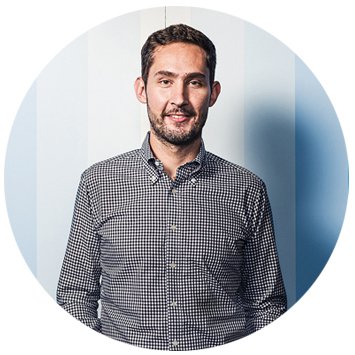Internet & web
Kevin Systrom
Instagram’s cofounder maintains his sharp focus.
Photo by Winni Wintermeyer

Latin America
Fabio Piva
Created a new technology for mobile commerce that allows physical stores to eliminate checkout lines

Latin America
Luis Loaiza
His software allows the user to delete emails even after hitting the Send button

Europe
Sébastien Deletaille
Preventing crisis and alleviating poverty through big data

Latin America
Gustavo Bessone
Created an intuitive platform to manage online advertising
